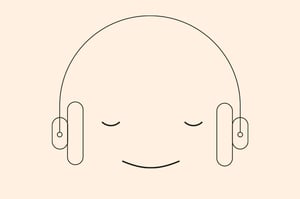11 artists, producers and audio professionals contemplate the crossover between musical and spiritual states.
As mental wellness app downloads show, many of us have turned to mindfulness this year to support our wellbeing, but traditional meditation practices aren't the only technique we've been using to self-soothe in uncertain times. Anecdotally, many people have reported that music also enhances the practice of being in the present moment, often resulting in stress-relieving benefits (as explored in this literature review by apa.org). To get to grips with music's potential as a mental health intervention, we spoke to 11 artists, producers and music industry professionals about the soothing attributes of sound and how mindfulness factors into their creative practice. Here's what they said...
"We must remember music's ritualistic roots"
Maja Chiara Faber (Satin de Compostela)
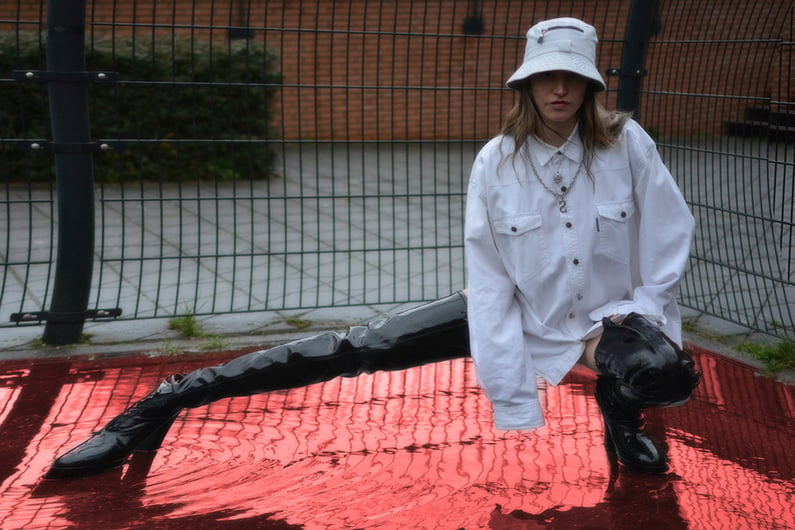
“Music originates from the healing rituals. The purpose of sound was primarily ritualistic, medical, spiritual and only later got absorbed by entertainment. This result was not accidental; the trance-like power of music to keep humankind elevated and distracted has been recognised and scrutinised for centuries. Whilst today it’s nearly impossible for music to exist outside of the entertainment framework, as a musician and DJ I find environments like clubs and festivals a valuable platform to reach out and share healing frequencies.”
“I always felt that performing for people is an act of communal bonding, as we give and receive energy to each other. Coming back to the origins of music, the ones who were playing instruments or singing during the rituals, were healers, shamans. I feel the healing power of music and I heal myself with it. And as I notice it works for me, I also want to share it with others through my work. For a few years now, I have been doing an exercise named sonic grounding, which is meditation guided by music and choreography. On a daily basis, I try to be aware of the presence of frequencies and their impact on me. I listen to music as I listen to stories, and I tell mine through it.”
Maja Chiara Faber is a Polish musician and DJ who performs under the moniker Satin de Compostela.
Photo by Eloy Cruz del Prado
"Music mirrors our natural rhythms"
Elise Livingston
“The rhythms of life can be closely linked to the rhythms we hear or make in music. Linking rhythmic tempo with the natural heartbeat is very powerful and can be a great way to practice breathing. Think of drumming in a circle, singing in a choir or standing in a crowd at a gig – we connect our breathing to a beat with those around us, and the feeling can be extremely moving, not just on a personal level but on a social level too. How many times have you felt emotionally connected to a band/artist and the whole crowd at a gig?
“Mindfulness factors into my practice in three ways. Firstly, with my clients. Mostly, we end with mindful breathing at the end of every session. This brings our awareness towards the present moment and allows us to set intentions for the day, or to let go of any tension we have been feeling. Sometimes we float off towards the sunset on an inflatable animal of choice, sometimes we just sit where we are in our bodies, listening and feeling what come up.
“Secondly, I quite often have a moment when I am out in nature or in the sea where I turn my thoughts to what I can see and hear and clear my mind of any thoughts. I find this a great way to re-energize when I've been busy or my mind's been thinking a lot. Listening to bird song, the wind in the trees or the ocean is a different kind of music and I find it can be very relaxing.”
Elise is a Music and Audio technology graduate and registered music therapist.
Find out more about her music therapy practice AMPED.
"Silence replenishes creativity"
Flo Lines
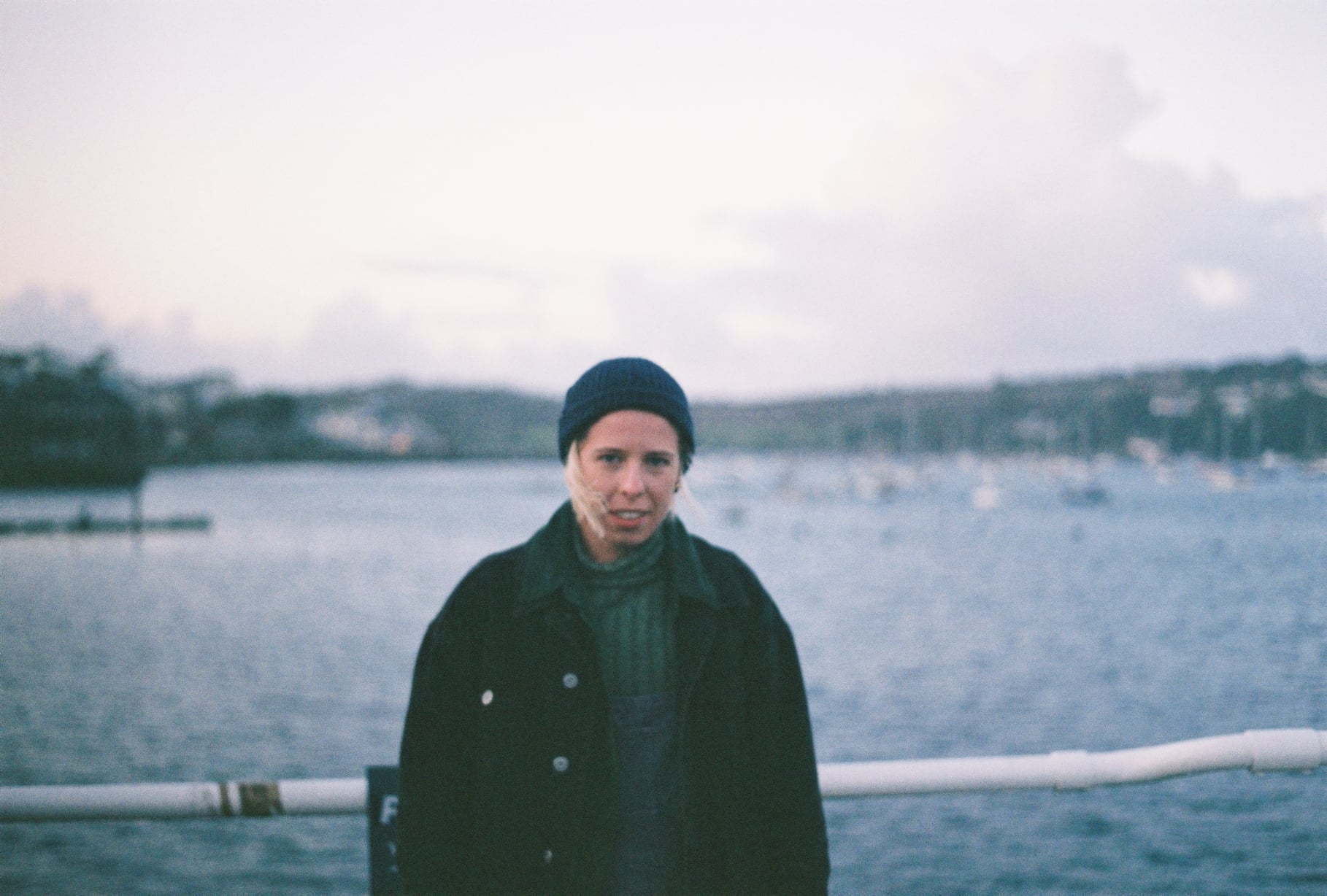
“Music is transformative. At its most intense it can help us to move between different states of being, similar to the way mindfulness and meditation can help us to understand different modes of attention and consciousness. I’ve always been interested in music and sound in a material sense, and how it interacts with our bodies as waves and frequencies; and so it's never been surprising to me learning how music, throughout history, has been a central part of meditative practices in both ritual and performance across most cultures. Music and mindfulness are connected as spiritual and devotional practices from the very early days- probably because they both aid our ability to understand deeper states of being.
“I have realised more and more that creativity is a capacity that we can easily exhaust, and mindfulness is vital to replenish yourself. Sitting with something without pressure and judgement is one of the best strategies for cultivating ideas, particularly with writing and making music. I often will use music in my meditation practice, and I find repetitive drones helpful for meditation and concentration in general. Mindfulness is a way of resisting the productivity logics that surround musicians for the constant production of work – allowing you to cultivate moments of silence that are necessary for making anything in the first place! I guess it is important to remember that “doing nothing” is never really doing nothing – your mind is always processing, shifting and creating ideas in those in-between spaces.”
Flo is a musician and sound artist who works for the community radio station RTM.FM. Follow her on Instagram @flolines.
"Consuming music calms the 'monkey mind'"
Jacob Blaidd
“Music can provide a sense of focus when facing a restless mind – our brainwaves attune to the rhythm of the piece whilst our emotions connect with the content of the piece. When these are in harmony, we’re able to focus our attention in a way that’s more conducive to regulating our emotions and resolving our stress constructively.
“As a musician/artist I practise mindfulness by trying not to live in the past or the future too much, as that’s where our anxieties tend to lie. Whilst having a long-term plan for achieving our goals is always a sensible thing, it’s important to recognise the tendency to over-plan and to let go of having a contingency for every “what if?” our minds can throw at us. Just take some time to check in with yourself and identify the moment you’re in; embracing being for the sake of being and creating for the sake of creating.”
Jacob is currently studying for an MA in Innovation in Sound. As part of his research project, he is currently developing a piece of EEG-based meditation and neurofeedback software (pictured below).
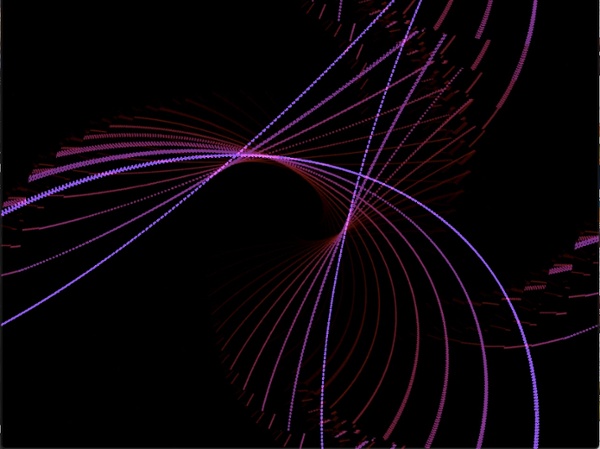
"Playing keeps us in touch with the present"
Fern Enley
“Music can bring an abundance of mindfulness – in the right mindset listeners can become present to every sound and oscillation – yet music can also throw a total spanner into mindful practices. In Buddhist theory, mindfulness is all about staying in the present and using your breath to bring you to that point. One thing I find very powerful about music is how it can teleport you to past experiences - positive and negative - taking you back to emotions you experienced. When there is a trauma attached to a song/band/album it can be hard for a listener to stay mindful. On the same note, music linked to a very positive experience will have you over the moon, possibly chasing that same high, or just generally focusing on those times and losing sight of the present.
“I believe playing music is mainly mindful. You have to control your breathing, use your focus for good execution and feel the beat, all within the direct time frame you are presently in. Making music is one of the most mindful things you can do. It is a way to stop harbouring the past and dreading the future; to be able to simply enjoy the 'now'.
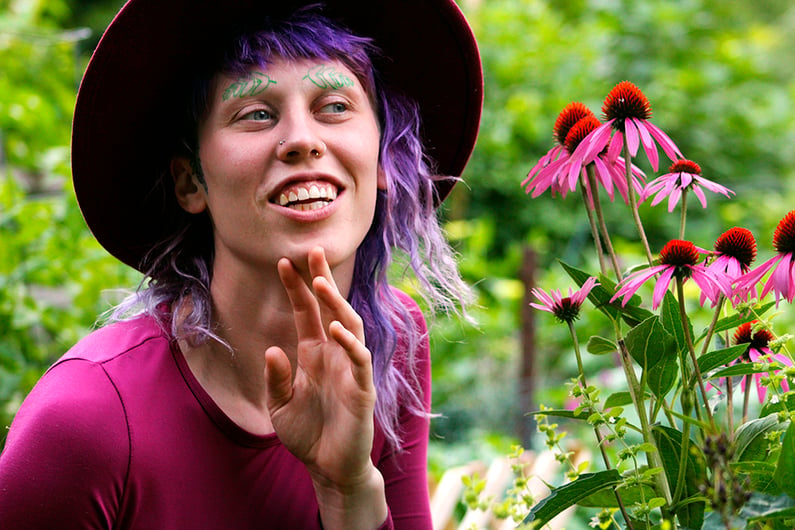 "I find the repetition involved in music practice makes me calm and zen. After I have committed myself to this practice I always feel recharged. On days where I am struggling to keep focus, I set a timer, and just hack away for an hour, which always brings me to a more centred state of being. I also like to be mindful outside of music as that is important too. It is important to take time to sit with ourselves and listen to the things we haven't yet heard. It is also important in this time that we lose the expectations, if it's not 'music' or your next 'masterpiece' it is still valid, because it is you, tending to your mind and body."
"I find the repetition involved in music practice makes me calm and zen. After I have committed myself to this practice I always feel recharged. On days where I am struggling to keep focus, I set a timer, and just hack away for an hour, which always brings me to a more centred state of being. I also like to be mindful outside of music as that is important too. It is important to take time to sit with ourselves and listen to the things we haven't yet heard. It is also important in this time that we lose the expectations, if it's not 'music' or your next 'masterpiece' it is still valid, because it is you, tending to your mind and body."
Fern Enley is a musician, artist and educator. He prides himself in his efforts with creativity, collaboration, and community. Follow him and his bands at the following handles: @FernEnley @Mopidykk @FREAKwents.
"Mindfulness is a type of flow state"
Judith Jarvis
“It has been well documented that listening to music can positively affect our mental state, but I think we need to differentiate between passively listening to music and actively immersing ourselves in music. Once we start actively listening to a piece of music - perhaps analysing it and pulling it apart - our brains are no longer working passively. When we start creating music our brains move into a highly active state because this involves several difficult tasks. To work more effectively, we need to progress towards a state of flow, which occurs when we become actively involved in a challenging and meaningful task. When a flow state just happens - unconsciously - I think it’s really hard to differentiate between flow and mindfulness.
“As having a creative project ‘on the go’ is important to me, I probably find myself subconsciously entering a state of mindfulness whenever I have a bit of time to work on the project. However, I am very interested in the state of flow which has been termed ‘super mindfulness’. The flow state is when we can get a substantial amount of work done – when concentration is high and one is progressing through ever more challenging tasks. Anxiety is the worst enemy of flow and putting aside anxiety might involve consciously mindful practices along the way.”
Judith Jarvis is currently studying for an MA in Innovation in Sound. Her research explores therapeutic soundscapes.
"Listening helps me tune in and tune out"
Sophie Redmond (RED)
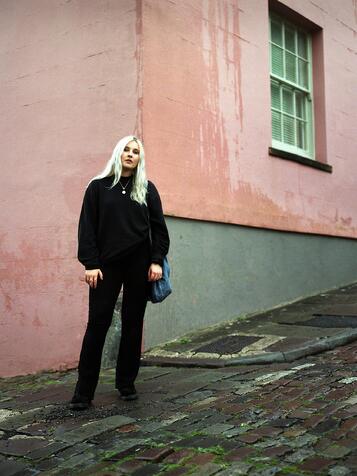 “Music is a form of meditation for me. It can help take me away from certain stressful situations and take my mind to a different place. It’s not just a consumer product but something people can relate to and feel many different feelings from. I think many people would feel the same about this level of escapism we can get from music. It’s a really beautiful connection between the mind, body and music.
“Music is a form of meditation for me. It can help take me away from certain stressful situations and take my mind to a different place. It’s not just a consumer product but something people can relate to and feel many different feelings from. I think many people would feel the same about this level of escapism we can get from music. It’s a really beautiful connection between the mind, body and music.
“I spend a lot of time on my own, listening to music to wind down and take the pressure off myself. I also listen to a lot of albums in full which helps me fully focus in on my mind. I do a lot of meditation as it helps ease my anxiety and I listen to lots of ambient music while I do this to open up my mind. This can help my creativity too and I’ve found I feel more creative towards my productions the more I practice mindfulness.”
Sophie aka RED is a DJ, producer and the founder of Red Waxxx records. Follow her on Instagram @sophieered_dj.
"Mindful breaks make for better productions"
Rory Johnson (Hun Grrr)
“I tend to think there is an innate and personal link between music and mindfulness, with each individual interpreting and balancing the two when meeting their own needs for serenity and a positive psychological outlook. Through listening to variations of ambient, new age and ASMR type of approaches to music, as well as more cliché 'world' music sounds, mindfulness can be enhanced and better achieved from my personal experience.
“My interaction with mindfulness is more incidental if at all through walking meditation and listening to different kinds of instrumental music. Whilst producing music, I do look for space in between sessions to be able to fully switch off from the process and back on again. This way, I can fully realise the truest instinctual decisions and deliberations of making music. Having a psychological break using mindfulness or an equivalent between sessions is a must to my creative process.”
Rory aka Hun Grrr is a DJ, producer and resident on 1020 and Noods radio. Have a listen to one of his radio shows below for some ambient selections.
"Dance music can be deeply healing"
Alexandra Onofrei (Lexia Majora)
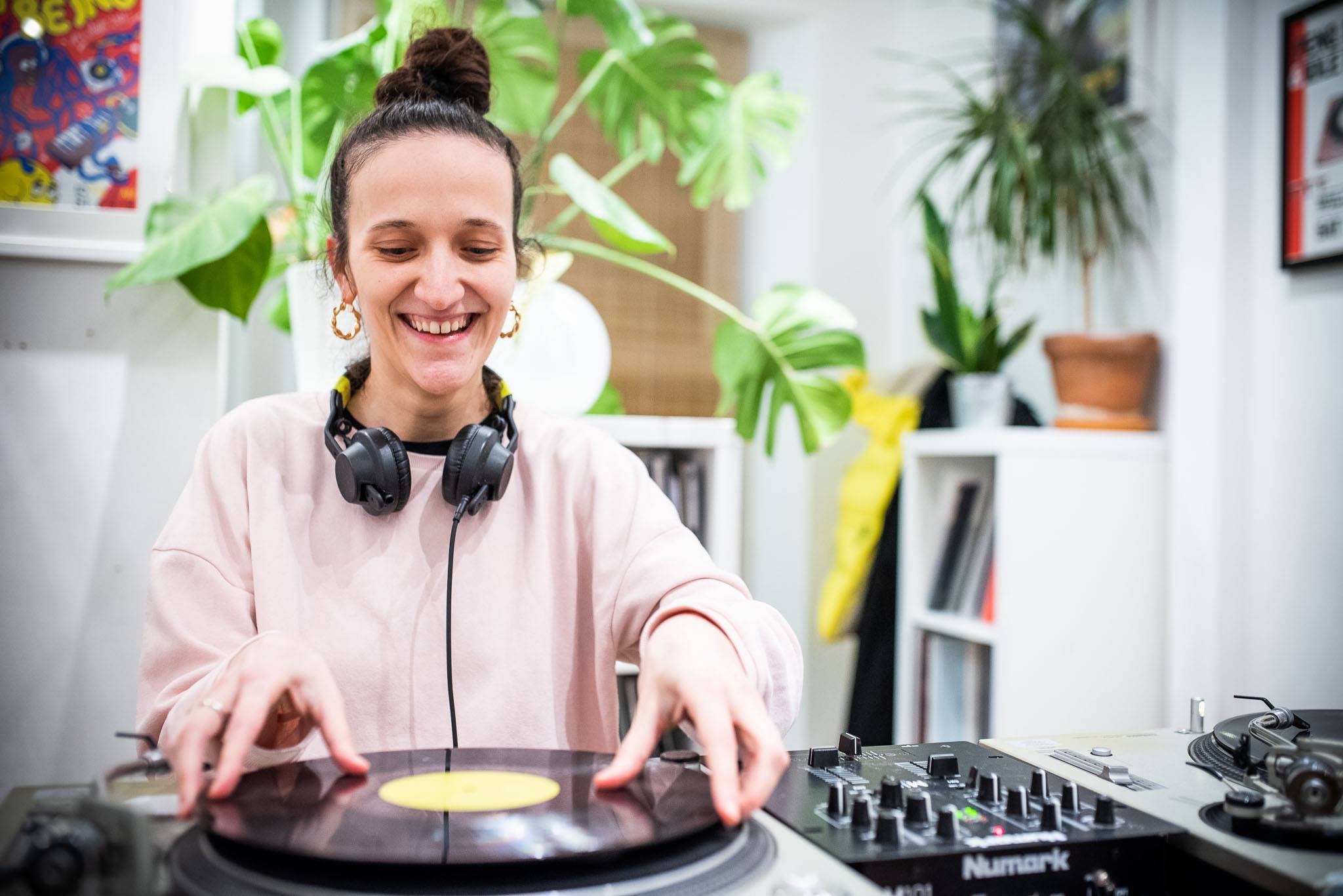
“Music is a powerful force that influences emotions, moods and atmospheres. All genres of music can do this, but I am thinking specifically about techno and house. Imagine being at a party and hearing a techno track. Its rhythm, its different instruments, vocals, words, tempo and even the breaks within the track can really capture your attention. Also, I think music is very tangible. You feel the vibration of the sounds, you can hear harmonies, perhaps you even dance in the club; all of which brings your attention to the present moment. Though not traditionally recognised as such, this is a powerful act of mindfulness.
“Once I’ve made a mix, I listen back to it a few times and often it feels like an embrace, or like meditation, but a really fun one in which I move my body and feel freely. When I share my mixes, I hope they do the same to the people who listen to them. In a lot of my sets, I have played techno songs where the vocals are yoga instructions or breathing exercises. I think this is beautiful and comes back to what I was saying before. Genres like techno can be deeply spiritually healing because they not only bring our attention to small sounds and nuances, but their vocals can also suggest a deep state of relaxation.”
Alexandra Onofrei aka Lexia Majora is a DJ and manager of 'Sister Sounds', the first collective for women and non-binary DJs in Exeter.
"I breathe to beat imposter syndrome"
Ellie Gillan (Ell/e)
“As a DJ, whether practising blends or creating mixes, you become so hyper-focused in what you are doing. In my experience, this means that after the session, anything I’m anxious about becomes less of an overwhelming problem in my mind. I find that there's no room for anything besides the music due to my ears being flooded with frequencies.
“Practising mindfulness as an artist is super important to me because it sets me in a headspace in which I can achieve what I've set myself to do in a relaxed mindset, and I enjoy the process more too. Meditation is a huge part of this, as it gives me the ability to allow thoughts to come up, not to overly divulge in them and to simply observe them.
"As an example, imposter syndrome can be quite detrimental to the creative process but meditation helps me not to focus on negative thoughts if they come up when I'm prepping a mix or listening back to a set. Breathing techniques are also a really helpful way to connect with your body in the present moment when feeling anxious. So, doing a 5-2-7 breathing technique alongside focusing on music can be a great way to not feel stunted by anxiety.”
Ellie aka Ell/e is a DJ and resident on 1020 radio. She will be starting a degree in Electronic Music Production at dBs this September. Check out her mixes on Soundcloud.
"Lyrical expression resolves emotional struggles"
Ree
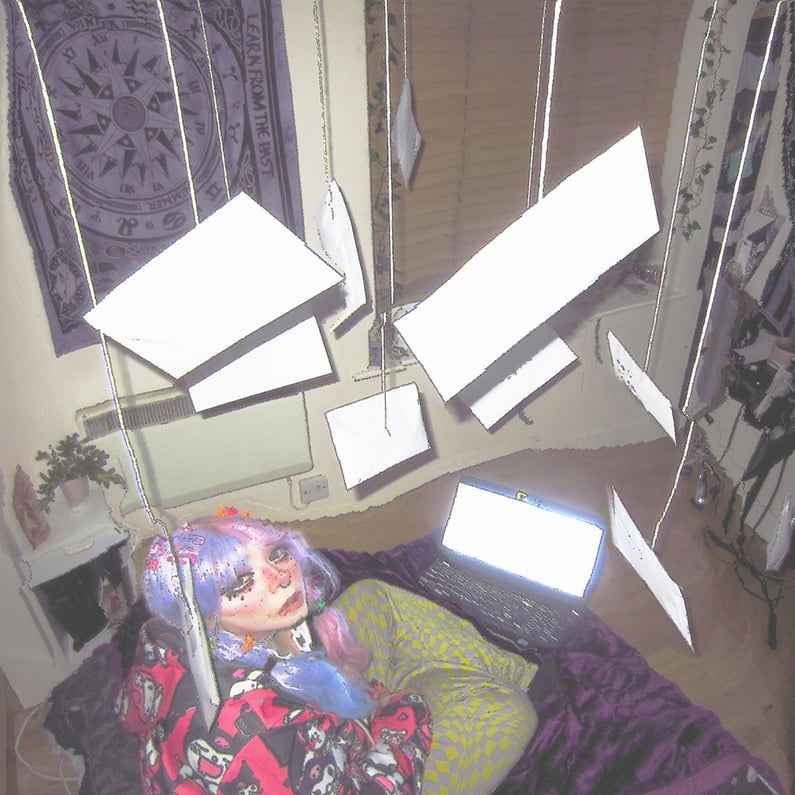
"I only regularly achieve a state of flow when producing and singing. It’s so freeing to feel fully enveloped in my pursuit, yet be in complete control. That’s not a feeling that I can often replicate elsewhere in my everyday life, which is why I love the process of creating music!
"Singing calms me and helps me return to my body - it awakens my mind/body connection through the rhythm of breath and engagement of my lungs, throat, nasal cavity, and core. I’ve always turned to singing in times of distress as a way to self-soothe – especially if that was the only form of affection available.
"Lyrics carried by a deliberately emotional melody can often help express thoughts and feelings too complex/situational to express through words or action alone, as well as help to resolve emotional struggles through narrative resolution and release."
Ree has just released her debut EP Ree96 and plans to release a follow-up single that will soon appear on a compilation album for the DESKPOP label alongside some of her favourite current artists.
READ MORE:
Conscious consumption and music production: Is it possible to make better music by buying less gear?
Old tracks new meanings: Exploring the evolving art of sampling


